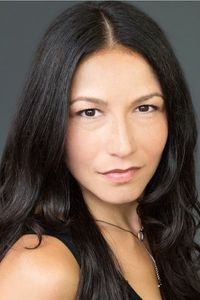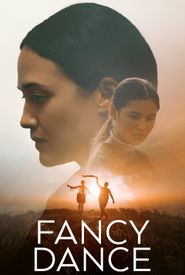Tamara Podemski is a multifaceted artist born and raised in Toronto, with a rich cultural heritage stemming from her Ojibway mother from Treaty 4 Territory in Saskatchewan and her Ashkenazi father from Israel. She is a graduate of the esteemed Claude Watson School for the Performing Arts, where she honed her skills in theatre, dance, and music throughout its 10-year program.
As a seasoned performer, Tamara has built a remarkable stage career spanning over 25 years, showcasing her talents as an actress, singer, dancer, and choreographer. Her notable achievements include starring on Broadway in the iconic musical RENT, and releasing three albums under her own record label, Mukwa Music, with two of them being written and recorded in the Anishinaabemowin language.
Tamara's impressive film career has garnered her critical acclaim, including winning the Special Jury Prize for Acting at the 2007 Sundance Film Festival for her role in Sterlin Harjo's film "Four Sheets to the Wind." She received an IFC Spirit Award nomination for Best Supporting Actress in 2008, followed by a Jessie Theatre Award nomination for her role in Marie Clements' play "The Edward Curtis Project."
Tamara's most recent projects include starring in Colleen Wagner's Governor General's Award-Winning Play "The Monument," which was hailed as one of the "10 Best Theatre Productions of 2018" by the Globe & Mail, and joining the all-Indigenous cast of Keith Barker's "This is How We Got Here," which won a 2020 Dora Award for Outstanding New Play.
Behind the camera, Tamara has made significant contributions as the writer and story producer of the documentary TV series Future History, directed and produced by her sister, Jennifer Podemski. She was nominated for Best Writing in a Factual Series at the 2020 Canadian Screen Awards. Additionally, Tamara recently won an 2021 ACTRA Award for "Outstanding Female Performance" and a 2021 Canadian Screen Award for "Best Supporting Actress - Drama" for her role as Alison Trent in CBC's "Coroner."
As a community worker, Tamara has traveled the globe, sharing her cultural and creative experiences through workshops, keynotes, and panel discussions. She has also spoken openly about issues of intergenerational trauma, reconciliation, inherited legacies, and the importance of creating safe spaces for dialogue, education, and collaboration. This is particularly significant, given her own family history, with grandparents who are both Holocaust survivors and Residential School survivors.


























